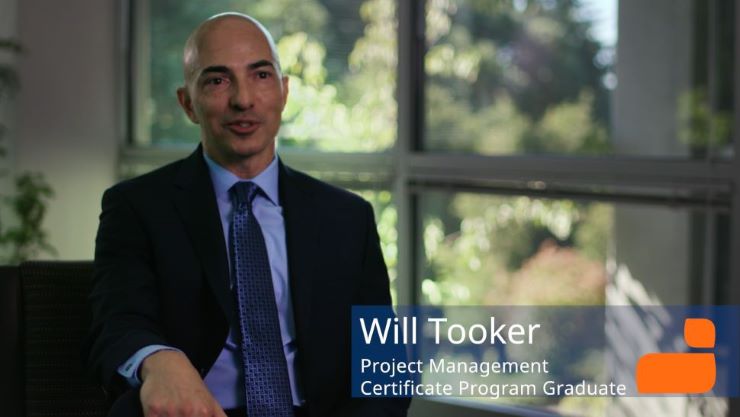Blog
Tombolo Institute to Offer Second Innovation Lab — A Business Accelerator Program Developed to Expand Entrepreneurship Opportunities Across Eastside Communities

8/24/2021
Tombolo Institute is partnering with Startup 425 to offer Innovation Lab classes that were developed to expand entrepreneurship opportunities across the Eastside communities of Bellevue, Kirkland, Issaquah, Redmond, and Renton. The goal of the partnership reflects the mission of Startup 425, which is “to provide access to tools that entrepreneurs need to go from idea to a working business that is successful and sustainable.” Additionally, the business accelerator program seeks to develop and sustain equity in the five Eastside communities by lowering barriers to entry for nontraditional and first-time business founders and to keep the regional ecosystem diverse by providing pathways to prosperity for the entire community.
The intensive four-week program is taught by veteran Bellevue College instructors Leslie Lum and Judith Paquette. The course, based on curriculum developed by Lum for the University of Washington, covers the knowledge base for entrepreneurship, which includes business model design, customer journey/segmenting/funnel, product life cycle, channels, social media, pricing, how to qualify for government contracts, business processes, value chain, process mapping, loan readiness, sources of capital, finance, and negotiations. At the beginning of the course, each student entrepreneur is matched with an accomplished mentor who meets with them once or twice a month for several months after the classroom work is completed.
Tombolo Institute is pleased to present the first of two interviews with Innovation Lab program instructors Leslie Lum and Judith Paquette. The following interview with Leslie Lum was conducted in August 2021.
Q: Please tell us about your background and industry experience.
Leslie Lum: I have an MSW and an MBA from Columbia University. I’ve worked for quite a few years in corporate, including a large packaging company and a financial services company that eventually became part of Citigroup. I also did mergers and acquisitions with a global bank working with clients from Asia, Australia, and New Zealand. After that, I worked for a startup, which I also managed. And then I started to teach. I’ve been teaching at Bellevue College for over 20 years. During this time, I shifted my concentration to focus on issues related to underserved entrepreneurs and businesses.
I serve on the board of the Foster School of Business’ Consulting and Business Development Center at the University of Washington. The Center is renowned nationally as the nexus of minority business research in the country; they’re known for uniting student teams with underserved businesses. I co-wrote the textbook that the Center uses with the late Thad Spratlen, who was the first tenured African American business professor in the country. I feel fortunate to have joined the Center’s board during its inception over 20 years ago.
Q: Did you bring the coursework you developed on multicultural consulting to Bellevue College?
Lum: Yes. I won a national award in community engagement for that program. The award recognized the idea of service learning where students work with the community. Our student teams have been meeting with and helping underserved businesses and organizations for over 15 years now. The program has been incredibly successful.
Q: How are you partnering with Startup 425?
Lum: In 2019, Startup 425 approached me about creating the Innovation Lab program that we now have at Tombolo Institute. They contacted me because they knew about my work with the University of Washington. They also knew about the work we were doing here at Bellevue College with underserved communities. The purpose of the Innovation Lab program is to address the loss of businesses that was occurring on the Eastside due to COVID-19. In essence, it began as a recovery strategy, as an effort to stem the tide of businesses closing on the Eastside. But now we are thinking of it as a much more long-term program. The program concept is that of a business accelerator, which is intended to prevent the premature demise of a small or startup business. What the Innovation Lab program is attempting to do is to take participants who own a small business to the next level. This assistance is especially important for BIPOC [Black, Indigenous and people of color]–owned businesses. Small businesses in general are fighting an upward battle. Only 50% of them survive to five years. But underserved BIPOC-owned businesses have an even lower survival rate. What we are trying to do is close the gap for these entrepreneurs.
Q: What are unique challenges facing BIPOC business owners?
Lum: Systemic racism is the core issue facing these businesses. It has been well-documented how the marketplace needs of people of color have not been addressed. Federal Reserve studies have shown how they have been denied banking and access to capital. BIPOC businesses have a much more difficult time getting a foot in the door. Additionally, these businesses have been disproportionately hit by COVID-19 because they tend to be in hospitality and in other industries that are more adversely affected. What we’re trying to do with the Innovation Lab program is to get these businesses revved up again and help them survive.
Q: How long have you been working with underserved communities?
Lum: I’ve worked with underserved businesses for more than 20 years. I’ve seen some incredible success stories with the entrepreneurs we’ve worked with in this region. When these businesses are running successfully, they uplift their own communities with economic empowerment. They tend to hire from within their communities. Our goal is to get these businesses running on solid ground, which helps close the equity gap. It is very heartening and inspiring to be part of that community.
Q: You mentioned that a key goal of the Innovation Lab program is getting these businesses up to a state of digital maturity. Tell us more about what that means.
Lum: The survival of the businesses owned and run by our program participants is about moving them to a state of digital maturity. Getting them on the path starts by having them go through the whole value stream of what their business does and asking questions such as: How can I make my business more efficient? How can I eliminate physical processes and replace them with digital ones? How can I use digital processes to make a better experience for my customers? For our students, the path to digital maturity starts by asking the right questions about their market, their goals and the internal operations of their business.
Some of the entrepreneurs we work with were able to get by because of their physical location and their ability to interact directly, in person, with their customers. Previously, that was enough to allow them to survive. Helping those businesses attain digital maturity has had a huge impact on their long-term survival, especially because it does not seem like COVID-19 is going away anytime soon. Research shows that the more digitally mature a business is, the more likely it’s going to grow.
Just as important as attaining digital maturity is how these businesses are using data to advance. Social media and search engine optimization (SEO) are both really important and are all about using data. These are things that many underserved businesses have not grappled with before. This can be a bigger challenge for BIPOC businesses because they are often hesitant to embrace web 2.0 technologies because they’re not familiar with them. Some have rudimentary websites, or they don’t make use of cloud-based applications — all the things that can make their business more efficient.
With the Innovation Lab program, we’re trying to get our students to the point where they are infusing these tools into their processes and business practices, and then using the data to enhance the customer experience and increase sales. In some cases, we’ve seen remarkable results of sales increases of 30% to 50%.
Q: What kind of additional support does the Innovation Lab program offer to its students?
Lum: The success of the Innovation Lab program is founded on a high-touch approach with our students. We don’t expect students to attend classes and then go out on their own and apply what they learned. Taking a four-week class is not going to change anyone’s life. Our approach is to interact with them like consultants and customize everything to their business. That is why our pilot program was so successful. We brought in expert speakers who represented the full breadth of diversity that’s in our community. The speakers addressed our students’ concerns, they asked them what kind of problems they were facing. And from day one, we matched students up with world-class mentors who volunteered their time. One was an Israeli Venture Capital who started an artificial intelligence company. Another mentor was a top executive at Microsoft. The mentors provide a support network and an ecosystem that opened doors and helps our students’ businesses thrive.
Twenty businesses will be generously funded for the $1,000 tuition by Startup 425. Businesses that successfully complete the course will be given support to get financing by Business Impact NW, a community development financial institution.
Next Innovation Lab Start Dates
The Fall 2021 Innovation Lab will be held synchronously on Zoom in four sessions:
Saturday, October 9: 9 a.m. – 1 p.m.
Thursday, October 14: 5 p.m. – 7 p.m.
Saturday, October 23: 9 a.m. – 1 p.m.
Thursday, October 28: 5 p.m. – 7 p.m.
Total classroom hours: 12 hours
Registration for this course is through an online application process. Apply for the next Innovation Lab course. The Innovation Lab program is open to any entrepreneur who has been in business for at least one year. Small business owners of all backgrounds are encouraged to apply.
For more information, please contact:
Leslie Lum at llum@bellevuecollege.edu or
Judith Paquette at judith.paquette@bellevuecollege.edu



